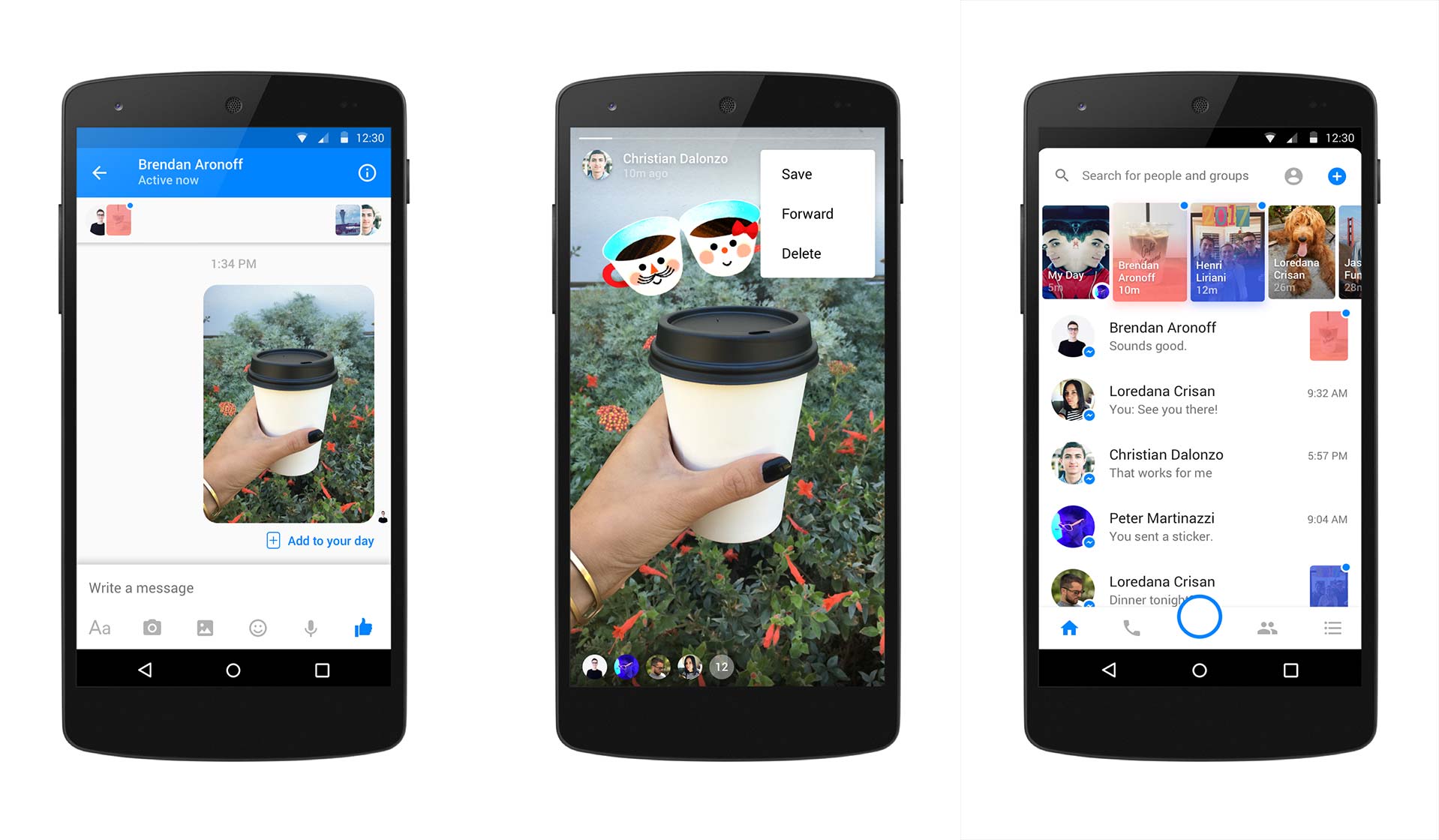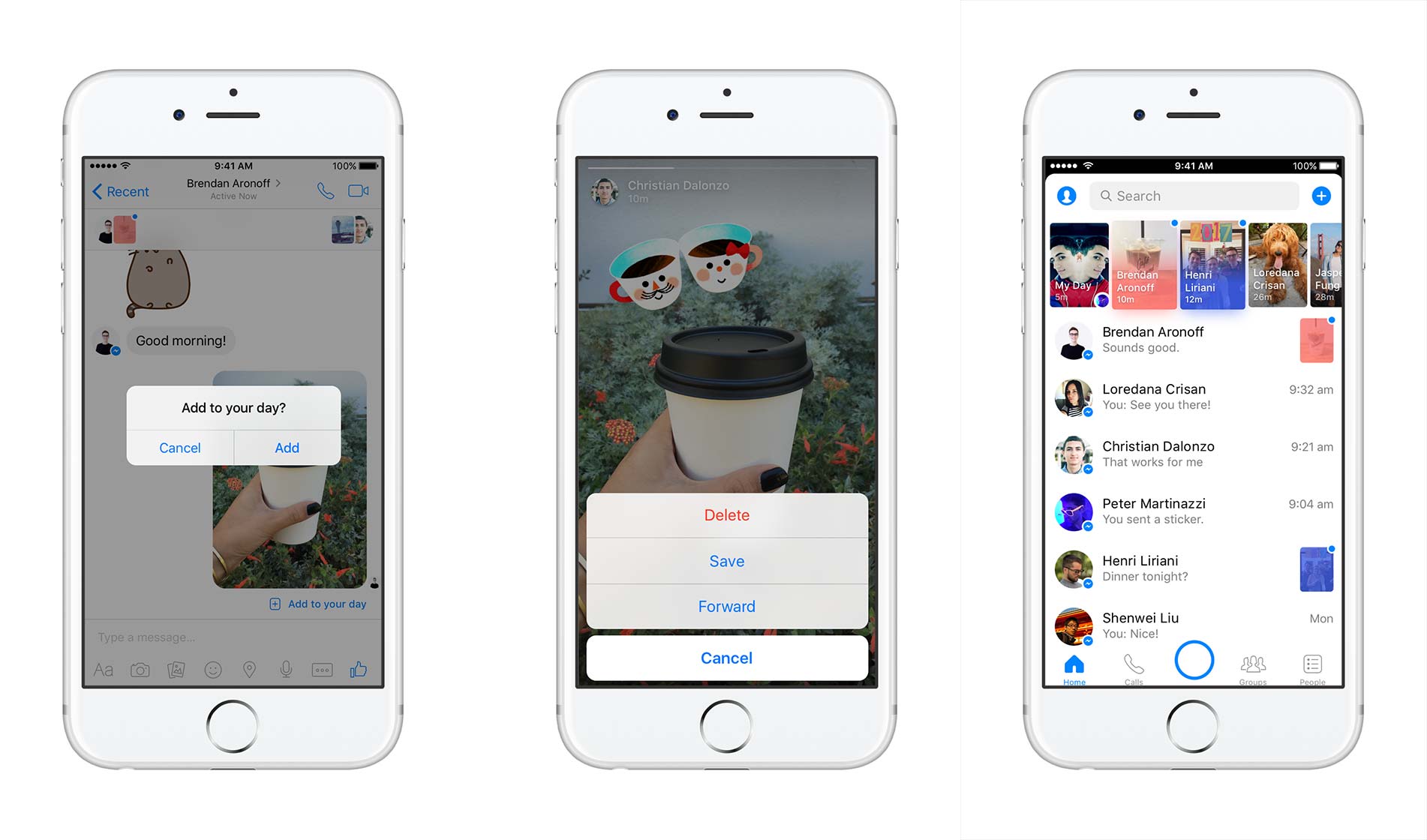
To go along with Messenger’s new built-in camera, Facebook has announced the launch of Messenger Day.
‘Day’ is a feature that allows Messenger users to share photos and videos as they happen, allowing their friends to view and reply to them.
While the feature shares similarities with Snapchat Stories at first glance, Stories yields itself to retelling what you’ve done, where as Day is better suited to the present with “Who’s up for?” and ‘Active Now’ filters.
The two platforms are similar in that a wide variety of filters are available to use with personal photos and videos, and that everything submitted to the platform disappears from Day after 24 hours.

In order to submit photos and videos to Day, users must ensure they’ve updated to the latest version of the Messenger app. Open the Messenger app, and tap the camera, which is currently highlighted with a sun to celebrate the launch of the feature.
Doing this brings users directly to the full-screen camera. Otherwise, users can tap the ‘Add to your Day” button at the top of their inbox to start posting, and snap a quick selfie or take a short video.
For users that are interested in adding art to their post, they can tap the smiley face icon in the top right of their display and then select which icons they’d like to add to their photo or video.
In addition, users can add text by tapping the “Aa” icon, or overlay a drawing by tapping the squiggly line in the corner. From there, users can add their creation directly to their Day.

Users can also add to their Day from a conversation they’re having with a friend or group. After sending a photo or video in Messenger, an ‘Add to your Day’ option now appears.
The world’s biggest social media companies have desperately attempted to mix up their own version of Snapchat’s secret sauce. While attempts have been made by Medium and Twitter, Facebook has been the most aggressive contender with additions like Instagram Stories and Messenger Day.
With Instagram’s Stories feature growing exponentially in use, it’s apparent that Facebook is beginning to make some ground on its much younger competitor, who it actually offered to purchase in 2012 for $3 billion.
MobileSyrup may earn a commission from purchases made via our links, which helps fund the journalism we provide free on our website. These links do not influence our editorial content. Support us here.


